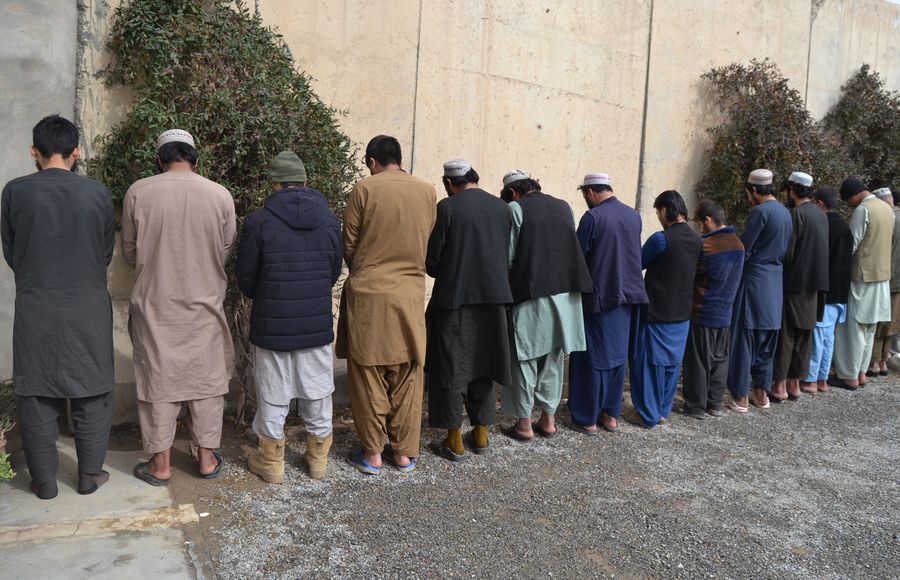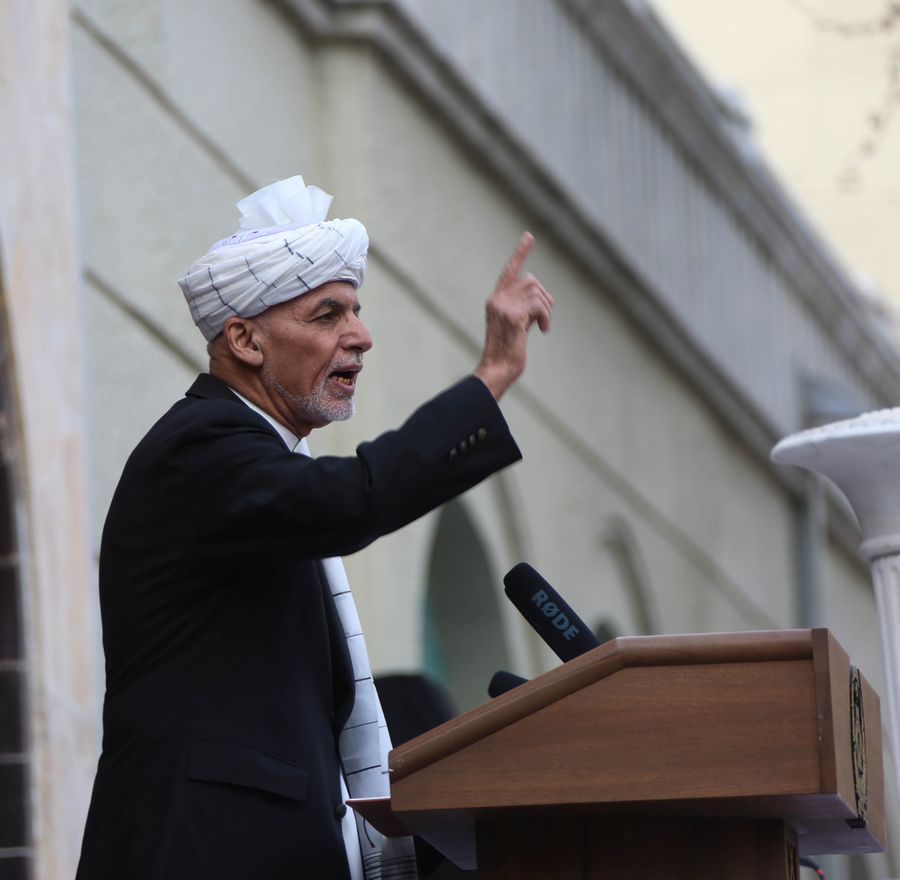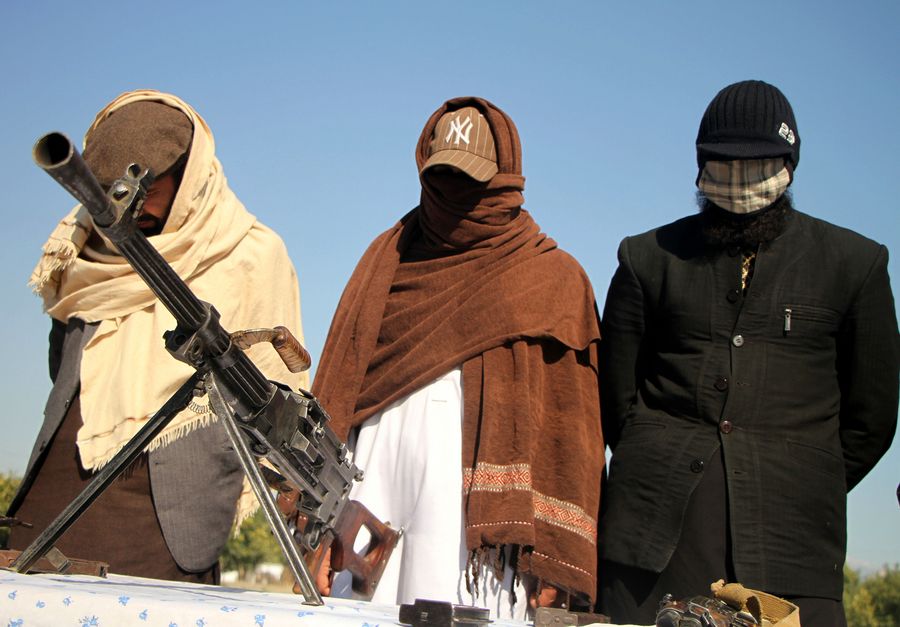
Taliban militants stand in line after being arrested by Afghan security forces in Kandahar Province, Afghanistan, Feb. 10, 2020. (Photo by Arghand/Xinhua)
Afghan president on Tuesday night issued a decree to release Taliban inmates on parole. The release of Taliban inmates had been a significant step toward ending the lengthy war and could open the door to intra-Afghan negotiations, an Afghan expert said.
KABUL, March 12 (Xinhua) -- The Afghan government and Taliban failed to conduct the first round of planned intra-Afghan talks scheduled for Tuesday, however, the release of Taliban inmates may facilitate the dialogue, a local expert said.
One day after being sworn in as Afghan president for a second time, President Mohammad Ashraf Ghani on Tuesday night issued a decree to release Taliban inmates on parole, with the release of the first 1,500 prisoners beginning on March 14, the government confirmed on Wednesday.
The inmates' release had been a significant step toward ending the lengthy war and could open the door to intra-Afghan negotiations enabled by two agreements signed between the United States and the Taliban and between the United States and the Afghan government, Aziz Ahmad Tassal, director of the Kabul Press Club, an independent media outlet, told Xinhua on Tuesday.

Mohammad Ashraf Ghani speaks at his swearing-in ceremony at the presidential palace in Kabul, Afghanistan, March 9, 2020. (Xinhua/Rahmatullah Alizadah)
According to the decree issued by Ghani, about 5,000 Taliban prisoners will be released gradually.
All prisoners who will be released in accordance with the decree must make a written commitment to guarantee they would not return to the battlefield, Sediq Sediqqi, chief presidential spokesman, said on Twitter on Wednesday.
The Afghan government will release the first 1,500 Taliban inmates within 15 days starting March 14. The remaining 3,500 Taliban prisoners will be released during and after intra-Afghan negotiations.
According to the decree, after the start of the intra-Afghan talks, 500 Taliban prisoners will be released every two weeks, and during this period a major reduction in violence should be witnessed, until the remaining 3,500 prisoners are released.
Every prisoner must pass through a biometric registration process, Sediqqi also said.

Taliban fighters attend a surrender ceremony in Jalalabad city, capital of Nangarhar province, Afghanistan, Feb. 8, 2020. (Photo by Saifurahman Safi/Xinhua)
Regarding the reintegration of the entire Taliban fighters, Tassal said the Taliban foot soldiers were fed up with the protracted war and, as seen during the reduction of violence week, most of them are ready to lay down their arms and reintegrate if they were provided with job opportunities and security.
According to the U.S.-Taliban agreements and Washington and Kabul joint declaration, the United States and coalition forces will leave Afghanistan within 14 months.
The first batch of U.S. forces has reportedly pulled out from a base in southern Helmand province.
Since Jan. 1, 2015, Afghan security forces have assumed the full security duties from NATO and U.S. forces.
Around 16,000 foreign troops, including about 13,000 U.S. forces, have remained in Afghanistan to train and assist local security forces in their fight against the insurgents.■



